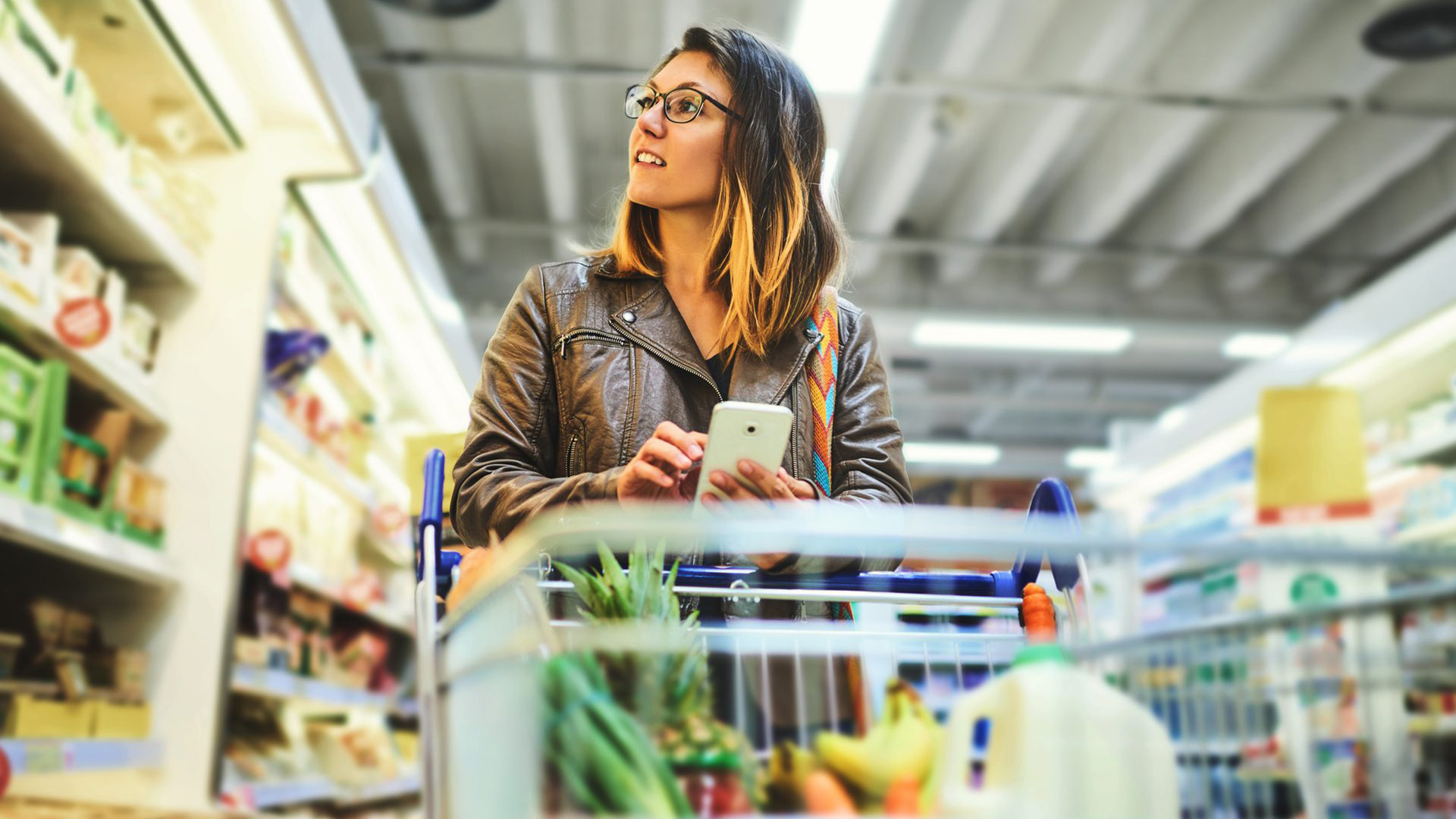Americans spend hundreds of dollars on groceries per month – in fact, the average household ranges from a low of $314 a month in Atlanta to as much as $516 a month in Seattle. Whether you use paper, plastic or reusable bags when you shop, you’ll need more than a few bags to transport vegetables, meats, dairy products, and other goods from stores to your home each time you make the trip for groceries.
Whether used for groceries, trash, or for hauling household and other items, it is estimated that 380 billion plastic bags, sacks and wraps are consumed in the U.S. each year, according the Environmental Protection Agency (EPA). This fact has led states like California, Connecticut, Delaware, Hawaii, Maine, New York, Oregon and Vermont to significantly reduce or ban single-use plastic. Some state legislatures have considered a number of measures to reduce the prevalence of plastic bags at grocery stores and other businesses, while others are focusing on bans, implementing recycling programs or imposing fees to discourage their use altogether.
With only a 5-cent per bag fee in some areas, or the adjustment of bringing your own bag(s), many of us generally supported the shift, especially if it’s in the name of environmental stewardship.
And then the coronavirus hit, and the importance of single use plastic bags become apparent.
In the past, health officials were able to trace the spread of norovirus back to reusable shopping bags. Now, fearing the spread of the coronavirus on reusable bags, lawmakers across the nation have taken steps to get plastic bags back into stores and ban reusable bags – at least temporarily.
Four years after becoming the first municipality in Massachusetts to ban the use of plastic bags, Cambridge, the home of Harvard University, became the first to issue an emergency order temporarily forbidding the use of reusable bags at retail stores, reflecting a growing fear they could be spreading the coronavirus. Backed by scientific studies, others are following suit. Now the scientific evidence in support of disposable bags is being reported in the news.
Thankfully, people are now beginning to understand why certain products are designed for just one use, much of which centers around promoting health and hygiene. Groups like the American Chemistry Council (ACC) have worked to educate consumers about why banning single use products restricts our access to everyday products like bandages, medical necessities, contact lenses, diapers and the vast majority of our food packaging.
The essential element for making these plastic products and their anti-microbial properties is natural gas, and while we’re awash in it at the moment, making sure it is affordable and accessible in the future is critical. This is especially true as we consider re-invigorate U.S. manufacturing and supply chain industry in the aftermath of the coronavirus. While we tend to think of natural gas as a fuel source for heating our homes, it is also vital to so many other things as you can see. And, should become even more vital in the near-future.
This means that the tie between sound energy policy and our health is as clear as the plastic we’re producing to keep us safe during the coronavirus outbreak.
Perhaps if plastic is preventing the spread of coronavirus and saving lives, maybe we shouldn’t be restricting it, or the natural gas we produce to make these products – as some misguided activists and politicians have stated.
At the end of the day, it is not the type of plastic bag you choose to use, it’s how you use it that ultimately makes a difference. That’s because it takes much less energy to manufacture a single-use bag, which can be used over and over again. Just because it’s called “single-use” and it may not be as fashionable doesn’t mean it can’t be used over and over. If you are done using it – recycle it!
The alternatives are reusable non-woven polypropylene plastic bags, which are harder to make than a typical single-use bag. There are also cloth bags, which happen to be the most labor and energy intensive bag to make. Despite the fact they’re labeled “reusable,” it is estimated that cloth bags need to be used at least 131 times to make up for the high-impact to produce them.
So, what it really boils down to is how often you use these bags, and how you dispose of them. Reuse, reduce and – RECYCLE – all of them. It is important to do our part to stay educated on products we use, their impacts (both good and bad,) and what we can do to play our part towards our nation’s environmental goals. Then, when we have unprecedented issues arise, like coronavirus, we’ll be prepared and ready!
As always, finding middle ground solutions are something we should always strive to make, even on reusable bags.
